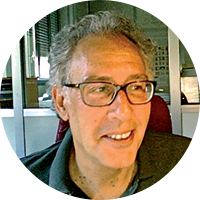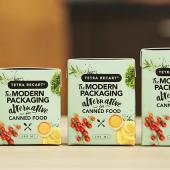Let’s learn to have hope

Editorial by Stefano Lavorini
While we look with worried anguish at what is happening in Europe, in the other hemisphere an important event has quietly taken place: on March 11, 2022, Gabriel Boric (36 years old) was sworn in as President of the Republic of Chile, a country that thus seems to be finally emerging from a decades-long slumber, going beyond the fears, first of the coup and then of the economic experiments of the Chicago Boys.
It was, in fact, September 11, 1973, when Salvador Allende, in his last radio broadcast from the besieged presidential palace, said:
«History is ours and the people make it. [...] The people must defend themselves but not sacrifice themselves. The people must not be annihilated or crushed, but neither can they humiliate themselves. [...] Other men will overcome this gray and bitter moment in which betrayal claims to impose itself. Know that, sooner rather than later, the great avenues will open again through which the free man will pass, to build a better society».
An echo of the past that speaks to us of the crimes that we have before our eyes today, of the anguish to which we do not know how to give relief, but also of the possibility of redemption that lies in the events of History.
We are living in a dramatic moment and I am convinced that, facing the horror of war, before speaking on the wave of emotions, it is good to reflect more than what we are used to.
In this sense, I was struck by what the theologian Vito Mancuso writes, for whom the invasion of Ukraine questions our moral conscience, puts us in front of a problem of ethics, or rather the dilemma of having to choose between life - or rather our physical dimension - and freedom - our moral dimension - since it is not possible in this historical moment to find a consonance between these two guiding values.
In the article "Is life or freedom worth more? War forces a choice" (1), Mancuso clearly illustrates two options to this question.
«There are those who answer life and are willing to submit their freedom for it, bending to the invader and accepting submission, perhaps then thinking of resisting non-violently through forms of civil disobedience. Those who act this way do it either because they could never embrace a weapon to suppress even a single life, even that of a ruthless Chechen mercenary; or because, calculating the magnitude of the forces at play, they think that resisting is useless, indeed it greatly increases the number of victims.
On the other hand, there are those who respond freedom, and are willing to put their own and other people's lives at stake, fighting the invader with weapons because they feel the moral duty to defend their country and their loved ones, and would never accept to lose their freedom. Better to die, they say, than to live as a slave».
For Mancuso, both options appear legitimate and respectable, but this does not prevent him from taking a position, as is right:
«Those who, like me, follow this second path, do so because they believe that the diplomatic path and the military path reinforce each other, and above all because they believe that for a human being there is nothing more important than the sense of justice, dignity and the desire for freedom».
It is a problem of conscience. But, I would add, also of geographical coordinates: Milan is not Kiev and the perspective, in this sense, counts a lot!
The fact is that we are all afraid and, terrified, we wonder who will stop the carnage in Ukraine.
Reason tells us, in fact, that we are disarmed in front of the monstrous exercise of brute force and we do not know how to deal with the threat of a nuclear war that keeps us in check: probably «to come to terms with the devil is understandable, and certainly it is also right» writes Massimo Giannini (2).
We can only continue to hope to be able to govern fear and suffering, and to preserve reason and judgment intact.
Unfortunately, it is evident that Man has not yet come out of his cave.
Homo homini lupus
(1) Vito Mancuso, "Is life or freedom worth more? The war forces you to choose", La Stampa, 11 March 2022.
(2) Massimo Giannini, "Our cry for peace will not stop Putin's wrath", La Stampa newspaper, 13 March 2022.




















